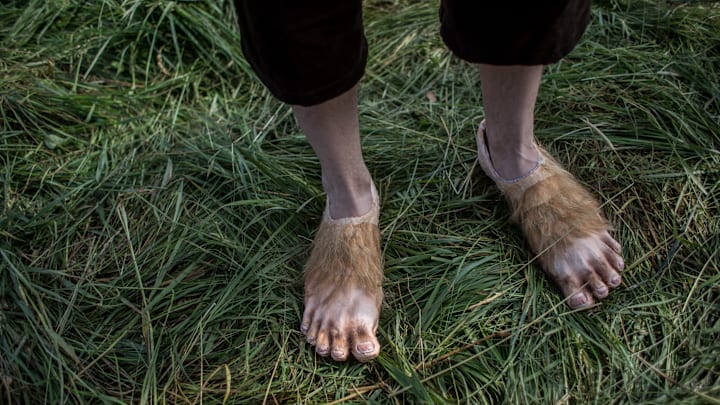As far as opening lines go, few are as uniquely memorable as the ten-word opening to a book published in 1937 by John Ronald Reuel Tolkien. The Hobbit explains that "In a hole in the ground, there lived a hobbit" and proceeds to explain why that is of significance to the reader. We learn that this creature who has a round door set into a hillside isn't typical of the Shire-folk. He is the son of an "extraordinary" mother and is "not quite as prosy as he liked to believe. " The character is torn between sense and the sensational and when one overcomes the other, it leads to him "doing and saying things altogether unexpected." Let's explore why modern fantasy lovers owe a storytelling debt to the tale of Bilbo Baggins.
"There is something the matter with you."
I've said it many times over the years, but I will state it here that J.R.R. Tolkien is a master at character development. I could go on for hours about The Lord of the Rings and have, in fact, spent four years studying Tolkien's works with a friend. But The Hobbit contains a single volume of nineteen chapters compared to the five dozen or so that it takes to bring the One Ring to Orodruin and save the Shire.
Tolkien brought this story to life for his children and that was later echoed when he sent excerpts of the sequel to his son who was deployed. I was fortunate to have a father who picked up the book when I was eight years old and began reading it to his three daughters. There are many people who consider this to be a kind of fairy-story, including Tolkien himself at one point, but in The Oxford Companion to Fairy Tales, Bilbo is considered atypical for a character.
Bilbo reminds me at times of every enterprising protagonist who overestimates his own gumption. In fact, I could very well hear him singing "There are big, tall, terrible, awful, scary, wonderful giants in the sky!" at times. But while this is considered children's literature, the character becomes a creature of legend while interacting with the legendary. A turning point is in "Inside Information," where Bilbo enters the Lonely Mountain on his own to seek out a dragon.
It was at this point that Bilbo stopped. Going on from there was the bravest thing he ever did.
"It was at this point that Bilbo stopped. Going on from there was the bravest thing he ever did."J..R.R. Tolkien
This is already the little fellow who got talked into being a burglar by the power of others' yearning for home and who had a "turning point in his career" when he picked up a circle of cold metal in Gollum's cave. He has been so audacious already, but it is in a spirit of "Nevertheless, she persisted" that makes him brave here.
"The soup that is set before us."
You might not be as familiar with this quote. Tolkien was invited to give a lecture at St. Andrew's and wrote a masterful essay not only on te origin of fairy stories, but on the purpose of them. It's surprising to find this man who studied the origin of languages and created languages of his own suggesting we not delve too deeply, but it's true. At one point, he compares a narrative to a soup and says that "we must be satisfied with the soup that is set before us, and not desire to see the bones of the ox out of which it has been boiled." He encourages us to "consider what [stories] are, what they have become for us" instead of their origins. It really is like enjoying a good bowl of cream of mushroom soup without studying the recipe.
It has to be said, though, that The Hobbit is part of the recipe for modern fantasy. I've seen it described as a bildungsroman, a word coined in 1819 to describe a literal "forming novel." Johann Karl Simon Morgenstern was its inventor and the genre is about the "psychological and moral growth of the protagonist from childhood to adulthood" according to the Guide to Literary Terms published in 1999. Harry Potter goes through this kind of transformation. So do the Pevensies of the Narnia books. Name any fantasy book or series of quality and there is someone for whom the narrative is this kind of "forming novel."
But The Hobbit is an essential forerunner to the lliterary collection that has been formed since its publication. I think of Bilbo in the Lonely Mountain when Harry chooses to confront Voldemort, especially since it talks of how "this cold-blooded walk to his own destruction would require a different kind of bravery."
It is not just Bilbo that shaped the narratives to come. The first time I got a dragon story published, I did not write a hero mustering the courage to face a Great Worm as Thor's map describes the dragons. Instead, I took my love for Tolkien and instead made a newborn dragon protected by the faith of children. So much of The Lord of the Rings is informed by the history of the dwarves' quest to reclaim Erebor. And it feels as though Harry goes "Through the Trapdoor" as part of the legacy of people who stop in fear and then go on as they discover that they are brave.
